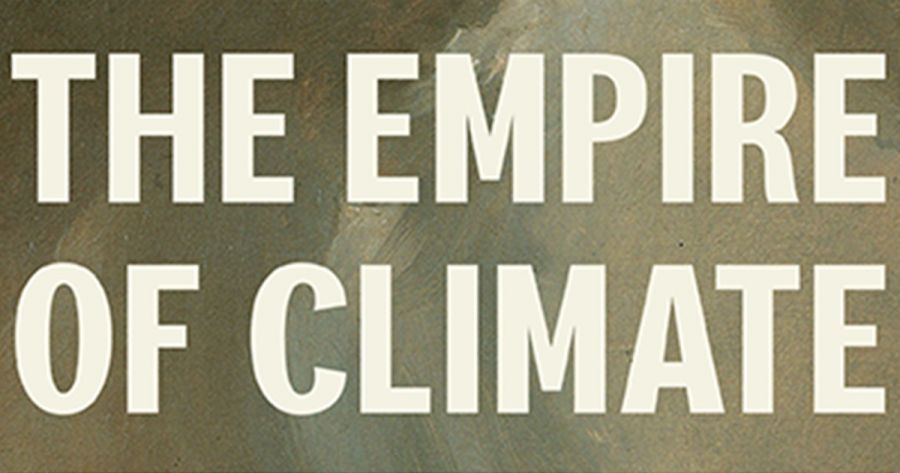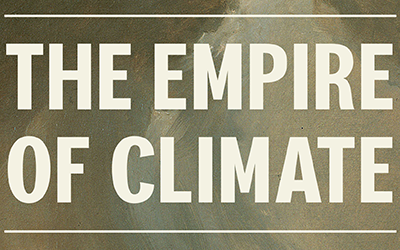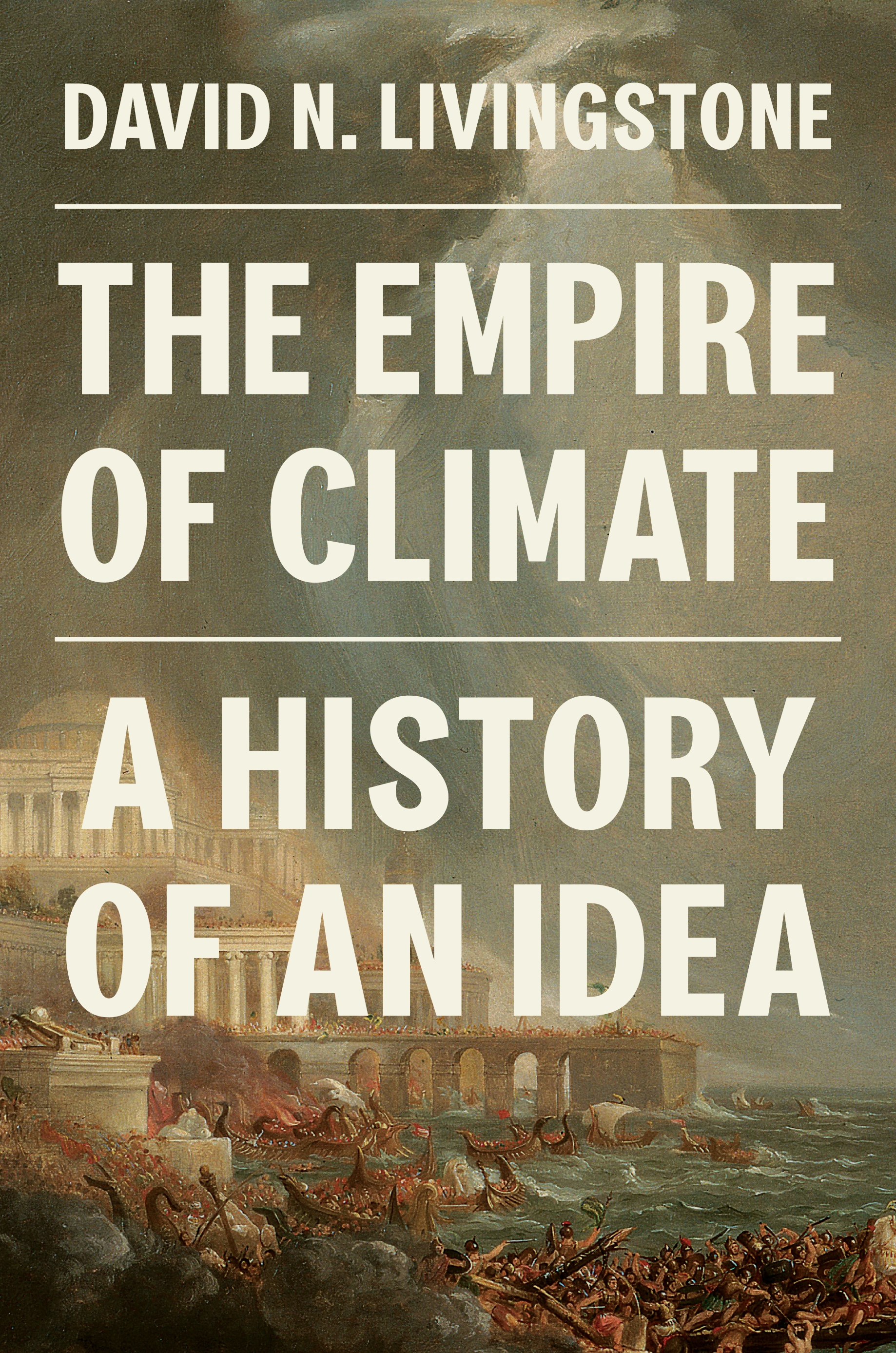
- Free Article: No
- Contents Category: Environment
- Review Article: Yes
- Article Title: Moral cargo
- Article Subtitle: Assuming responsibility for the future
- Online Only: No
- Custom Highlight Text:
The birth seasons of the Democrat and Republican presidential candidates may be one of the few details of the nominees that have escaped close scrutiny in the lead-up to November’s election. Such a neo-Hippocratic political analy-sis might also consider their general body types, genealogies, dispositions, and partners, according to the approach of a 1943 study, Lincoln-Douglas: The weather as destiny. Written by a Chicago physician and professor of pathology and bacteriology, William F. Petersen, the meteorological biography of Abraham Lincoln and his political opponent Stephen Douglas sought to make the case for the causal climatic forces on the political trajectories of its protagonists. Lincoln’s success was apparently thanks to his slender physique and ‘better equilibrium with the environment’.
- Featured Image (400px * 250px):

- Alt Tag (Featured Image): Ruth Morgan reviews ‘The Empire of Climate: A history of an idea’ by David N. Livingstone
- Book 1 Title: The Empire of Climate
- Book 1 Subtitle: A history of an idea
- Book 1 Biblio: Princeton University Press, US$38 hb, 544 pp
- Book 1 Cover Small (400 x 600):

- Book 1 Cover (800 x 1200):

The implications of Petersen’s study for the 2024 election aside, the physician is just one of the many thinkers that feature in geographer David N. Livingstone’s wide-ranging analysis of the long history and politics of the idea of climate. In The Empire of Climate: A history of an idea, Livingstone sets out to release his readers and fellow writers from climate’s ‘explanatory hold’ on human affairs by showing how many of our contemporary concerns about climate and climate change have extensive histories of their own. For Livingstone, climate’s ongoing influence is most apparent in terms of physical health, mind and mood, economy and wealth, war and conflict, such that centuries-old notions of climate determinism and reductionism are regularly rehabilitated for the twenty-first century in research studies, bestsellers, and news headlines.
As the basis of the book’s four parts, these themes allow Livingstone to reprise some of the thinkers and ideas that have animated his research since the early 1980s and whose contributions have become newly salient in light of the pressing challenge of climate change. Here, his project is to flesh out the historical genealogies that buttress his colleague Mike Hulme’s observation in Weathered (2016) that, ‘[t]he recent phenomenon of climate-change is not a decisive break from the past, neither is it a unique outcome of modernity. Climate change should be seen as the latest stage in the cultural evolution of climate, an idea which enables humans to live with their weather through a widening and changing range of cultural and material artefacts, practices, rituals and symbols.’ Neither Livingstone nor Hulme denies that anthropogenic climate change is one of the greatest moral challenges in the world today; rather, they call for much greater caution about simplistic uses of climate and climate change, freighted as they are with what Livingstone calls ‘moral cargo’.
Prognoses of climates past, present, and future, as The Empire of Climate shows, have always been about people and politics. Livingstone traces how climate has been critically implicated in the politics of imperial control, labour power, and race relations, as well as its use to explain market performance, national character, cultural collapse, and economic breakdown. Climate has also been associated with psychological disorders and distress, as well as evolutionary pathways and human physiology, while providing the explanatory trigger for civil war, aggression, and conflict. Complex and contradictory as these attributions of causal agency to climate can be, they remain compelling, Livingstone argues, because they ‘satisfy the desire to shift culpability from humanity to nature’. Blaming climate for war, famine, violence, crime, and all kinds of other social ills allows us to transfer moral responsibility from human agents to atmospheric conditions, he explains.
Although Europeans such as English physician Thomas Sydenham (1624-89) and the French philosopher Baron de Montesquieu (1689-1755) are widely credited with having revitalised the writings of the ancient Greek physician Hippocrates, Livingstone traces the intellectual lineage of their ideas to the Arabic scholar Ibn Khaldūn (1332-1406). The climatic philo-sophy he outlined in his celebrated history, Al Muqaddimah, held that the temperate zone had favoured the rise of advanced cultures, temperate in both physique and character, while the ‘excessive heat’ of the equatorial zone had produced the opposite. When encountered by European travellers in the seventeenth century, Khaldūn’s ideas resonated with a growing embrace of a latitudinal philosophy of civilisational accomplishment. Their translation into French and then into English in the mid-twentieth century dovetailed with a contemporary interest in the climatic causes of social development and dynastic change that geographer Ellsworth Huntington was spearheading.
For English historian Arnold Toynbee, one of Huntington’s great admirers, Khaldūn’s philosophy of history was especially profound given its Islamic origin – the ‘sole point of light in his quarter of the firmament’, as he put it in A Study of History (1934). Toynbee’s position is just one of the many contradictory and competing claims that arise in The Empire of Climate, together revealing the range of political ends that climatic correlation and causation could serve. Another such instance draws on the work of literary scholar Jessica Howell, who recovered the writings of Sierra Leone army officer and Edinburgh-trained physician of Ibo parentage, James Africanus Beale Horton (1835-83), and Jamaican nurse and hotelier, Mary Seacole (1805-81). The former drew on reams of meteorological data and medical experience in support of an emerging African nationalism, while the latter resorted to the language of climate and constitution to confirm the unsuitability of the tropics for British colonisers.
Seacole aside, readers may be forgiven for believing that both the subjects and students of climate’s empire have been mostly male. We learn a lot about what men thought climate imposed on (European) women, but rather little about what women have made of climate studies. Although it is possible that climate has seduced men more easily than others, the endnotes suggest otherwise: there we find traces of scholarship on the colonial marketing of South Africa’s climate to British women by geographer Georgina Endfield, as well as historian Alison Bashford’s extensive work on Australian biopolitics and her collaboration with Carolyn Strange on the life of geographer Griffith Taylor. The gendered nature of climate’s empire remains to be written.
Bringing his volume to a close, Livingstone reflects on the persistence of climate determinism in the age of the Anthropocene. Although the rise of humanity as a geological agent might suggest to some a rupture from the past, he observes instead affinities in the deep fears about the influence of an anthropogenically-changed climate on human societies. Apocalypticism may intend to avert disaster, but Livingstone’s history of climatic determinism reveals just how crippling a force it can be on human agency, equality, and empowerment. Rather than argue for the weather as destiny, as did Professor Petersen, we might resist the fatalism of climate’s empire and assume responsibility for the future.


Comments powered by CComment